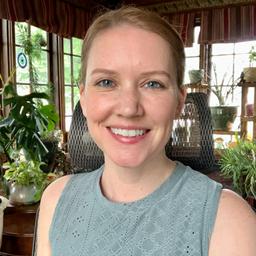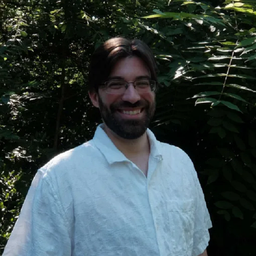Therapists in Indiana
Find the best therapist in Indiana for your needs on Grow Therapy. With 290 verified therapists in Indiana, you can connect with licensed professionals who are currently accepting new patients. Grow Therapy verifies and credentials each Indiana therapist to ensure they are active, available, and aligned with your needs. Whether you’re seeking support for family conflicts, grief, life transitions, Indiana’s therapists offer compassionate, personalized care tailored to your unique circumstances.
Find therapists near you in
IndianapolisAvailability updated: 7/30/2025
Jayme Albin
(she/her)

Marcus Odair
(he/him)

Find therapists experienced in these areas
Kavita Mehta

Steve Kawiecki
(he/him)

Michael Kaminski

Jacky Liszewski

Gabriel Kelly
(he/him)

Jim Sanders

Keri Nuske

Frequently rebooked
Debi Bennett

Kimberly Winkel
(she/her)

Jennifer Duque
(she/her)

Veronica Vaughn
(she/her)

Joe Shepherd
(he/him)

Darlene Y. Graham

Mary Slowiak
(she/her)

Anne Overdorf
(she/her)

Samantha Meadows
(she/her)

Michael Megonnell

Ashlyn Ciszar
(she/her)

Soneela Choudhry
(she/her)

Samantha Seeger
(she/her)

Frequently rebooked
Eileen Svarczkopf

Kandace Barkham
(she/her)

Laurel Bourgeois
(she/her)

JoAnn Treece
(she/her)

Leo Bowman
(he/they)

Sierra Lenczycki
(she/her)

Ruth Dilley
(she/her)

Tracy Parus

Jessica Drury

Sean Abraham

Dr. Nate
(he/him)

Cornelia Mayor

Liz Baumann
(she/her)

Brandie Fitch
(she/her)

Jena Fouraker
(she/her)

Danelle King
(she/her)

Dr. Brianna Finney

Edna Sanders
(she/her)

Valarie Anderson

Shannon Ellis
(she/her)

Frequently rebooked
Taylor Blackford
(she/they)

Jennifer Hunt

Crystal Kelly
(she/her)

Hayley Dorsett
(she/her)

Jaley Floyd

Malisa Komolthiti
(she/her)

Frequently rebooked
Jennifer Beckham

Ashlyn Hopkins
(she/her)

Learn more about our therapists in Indiana
Average years in practice:
13
Top conditions treated:
- 82% Anxiety
- 72% Depression
- 54% Coping Skills
- 52% Trauma and PTSD
Top 3 insurances accepted:
- Cigna
- United Medical Resources
- Oscar
Providers see clients:
- 85% online only
- 14% in-person and online
- 1% in-person only
Providers are:
- 79% Female
- 17% Male
- 1% Other
Search therapists by insurance
- Blue Cross Blue Shield
- Aetna
- Cigna
- Anthem
- United Medical Resources
- Optum
- UnitedHealthcare Shared Services
- Oscar
- AvMed
- UnitedHealthcare Life Insurance
- EAP:Cigna
- UnitedHealthcare StudentResources
- Surest (formerly Bind)
- Humana - Medicare
- All Savers
- Oxford
- Humana Dual (Medicare & Medicaid)
- Golden Rule
- OptumHealth Complex Medical Conditions
- Evernorth
- WellCare
- EAP:Evernorth
- Tufts Health/Cigna
- UnitedHealthcare/Optum
- Harvard Pilgrim/UnitedHealthcare
- EAP:UnitedHealthcare/Optum
- Aetna - Medicare
- UnitedHealthcare/Optum - Medicaid
- Ambetter Health
- Managed Health Services (Managed Medicaid)
- Medicaid - Managed Health Services
Search therapists by their specialty
- Addiction Therapists in Indiana
- ADHD Therapists in Indiana
- Anger Management Therapists in Indiana
- Anxiety Therapists in Indiana
- Bipolar Disorder Therapists in Indiana
- Child Therapists in Indiana
- Couples Counseling Therapists in Indiana
- Depression Therapists in Indiana
- Grief Therapists in Indiana
- Veterans Therapists in Indiana
- OCD Therapists in Indiana
- Post Partum Therapists in Indiana
- Self Esteem Therapists in Indiana
- Spirituality Therapists in Indiana
- Trauma & PTSD Therapists in Indiana
Search therapists by their identity
Search therapists by type of therapy
- Attachment Based Therapists in Indiana
- Christian Counselors in Indiana
- Cognitive Behavioral Therapists in Indiana
- Cognitive Processing Therapists in Indiana
- Dialectical Behavior Therapists in Indiana
- EMDR Therapists in Indiana
- Grief Therapists in Indiana
- Internal Family Systems Therapists in Indiana
Search therapists in nearby states
Frequently asked questions
Why filter by Indiana rather than a city
like Indianapolis?
When looking for online therapy, you can see anyone that is credentialed in the state. We want you to find the best fit, therefore, Grow Therapy shows available therapists across Indiana from Fort Wayne to Evansville! If you’d rather see someone in-person, you can change the filter from virtual and find a therapist near you in Indiana.
Will my therapist take insurance?
When booking you’ll be asked to verify with your Member ID. However, if you don’t have any of the insurances available you can select cash. Our therapists will have their cost of appointment on their profile. Individual session costs will vary.
How does the Specialty Filter work? Can I find a therapist that focuses on a specific issue?
The specialty filter is optional. You don’t need to check any boxes to see a provider. However, fit is very important when selecting an online therapist. If you have knowledge or experience to recognize what specialties you may need.
What are the "Clients say I'm" badges?
Grow Therapy asks patients about their experience with therapists after they have had a certain number of sessions. After enough responses, we add those characteristics to their profiles to help you find the best online therapists for you. We're still working on collecting this information from all our therapists.
Why use Gender, Age, and Identities filters?
Finding a provider with a similar life experience can be beneficial because it can be easier to establish rapport and potentially be understood quicker and clearer.
What to expect during your first session?
Depending upon your provider's specialty, you may also discuss the methods the therapist will use. For additional information on therapy methods, please visit the Grow Therapy Help Center. Some people feel nervous before their first appointment, and that is totally normal! Coming prepared with a list of questions for your therapist may help. Remember, you're taking a brave step by seeking therapy, and it is okay to be nervous as you try something new.